Story by Chase Seabourn // @chasecaldwell_ // pronouns: he/they
Illustrations by Meredith Cambis // @meredith_design // pronouns: she/her
There are many things that a pandemic can teach us. It’s taught us, for example, that the world has to be more flexible and can be when it actually makes the effort. It’s also revealed to each of us whether or not we’re a true introvert. Above all, however, there’s something very transformative about coming to terms with the impermanence of life. When we can’t go outside and are unable to access people and the world in the same way we used to, the illusion of normalcy begins to dissolve in fragments around us. And in this never-ending continuum of days clouded by uncertainty, it’s very likely that you’ve asked yourself what life even means in the greater scheme of this world. Our suits of armor are stripped from us; there are no distractions anymore. We’re forced to confront ourselves, and, with that, we each have had to devise a game plan to mentally survive this pandemic or maybe even come out stronger than before. Naturally, self-therapy has moved to the forefront now that it’s really all we have. In an age of who can self-analyze the best or who can pinpoint exactly what life means, what they need out of it, and how they’re going to get it in isolation–who is the winner?
We all have an ideal version of ourselves. It’s safe to say that regardless of whether our self-check list is overtly conscious or buried deep within us, each and every one of us has one, and we exercise it at every waking moment. It’s just human nature. We strive to challenge ourselves, to get the most out of each day so that we can take what we’ve learned into the next. Maybe it was the individualist culture we were immersed in growing up; maybe it’s a natural way of processing trauma, or perhaps it’s simply a characteristic of self-preserving as a young adult in an incredibly unpredictable and often disappointing world. We want tangible progress! Oh, to have the satisfaction of being able to control one thing in our lives, our own personal trajectory. So, we hold ourselves to a high standard in the name of hopefully benefitting from it in the end. It’s such a well-meaning way to live. However, there has to be some kind of consequence to our self-worth if we’re constantly challenging ourselves like this. That is, if we’re not able to jump through all of the hoops we place in front of ourselves each day to adequately grow enough for the next, how beneficial is it to be so dizzy all the time? So many days are drowned in self-doubt and disorientation because we can’t meet our own expectations. Which makes it relevant to ask, is it possible that we think about ourselves too much? Think about that. What does it actually mean to live “productively,” especially right now? These are important questions to take into account to accurately see both sides of the coin. It’s philosophy, baby.
One thing to consider is what the actual definition of loving yourself means. We go over it every day. The concept of self-care is so inextricably attached to our lives, socially and economically, that it has become rhetorical. Corporate America prescribes ‘self-care’ and self-love as purely a new face mask, a new sweater; this is where it begins and ends. Social media’s prescription of ‘self-care’ and self-love, however, is not so direct. Instagram tells you that self-love is captured in a single moment (even when that moment is, arguably, fictional). Twitter tells you to constantly process, to deeply dissect every aspect of your life, and the world, in order to move with intention in everything; it says enlightenment is peak-performance. However, enlightenment is presented as a contest. The noise of the self-care industrial complex, our daily immersion in social media politics, and the constant battle of trying to retain our personal joys and methods of self-preservation makes it incredibly difficult to find an identity, and even further, to find peace. Well, let me propose that the solution to this is far different from engaging with the ordeal of self-love and self-analysis in the same way that we have been. It’s not about finding the answer but, rather, blindly accepting that there is so much we cannot understand about the world and that we have to stop trying. Our personal liberation has to take priority at some point.
We’re young and living in a day and age that has no precedent or rule book. Embracing the uncertainty of life begins with understanding that constantly looking at ourselves from the outside is actually incredibly damaging and not the same thing as control. There are very few things in this life that we can control. One of them, however, is blindly loving – loving others, loving experience, vulnerability, all the nuance of being human and, of course, the elusive act of loving ourselves blindly.
Being a modern and adapting person is important, yes, but the mode in which most of us try to do that seems far too often driven by insecurity. Flip that on its head for a change. For even just a day, try life without thinking too hard. It’s radical, but productively living can be a radical act. That sexy, enigmatic person who doesn’t get too caught up on everything is within you, and the key to unlocking it is within reach.
Don’t worry, it’s a gradual process and one that you can pick up whenever you’re ready.































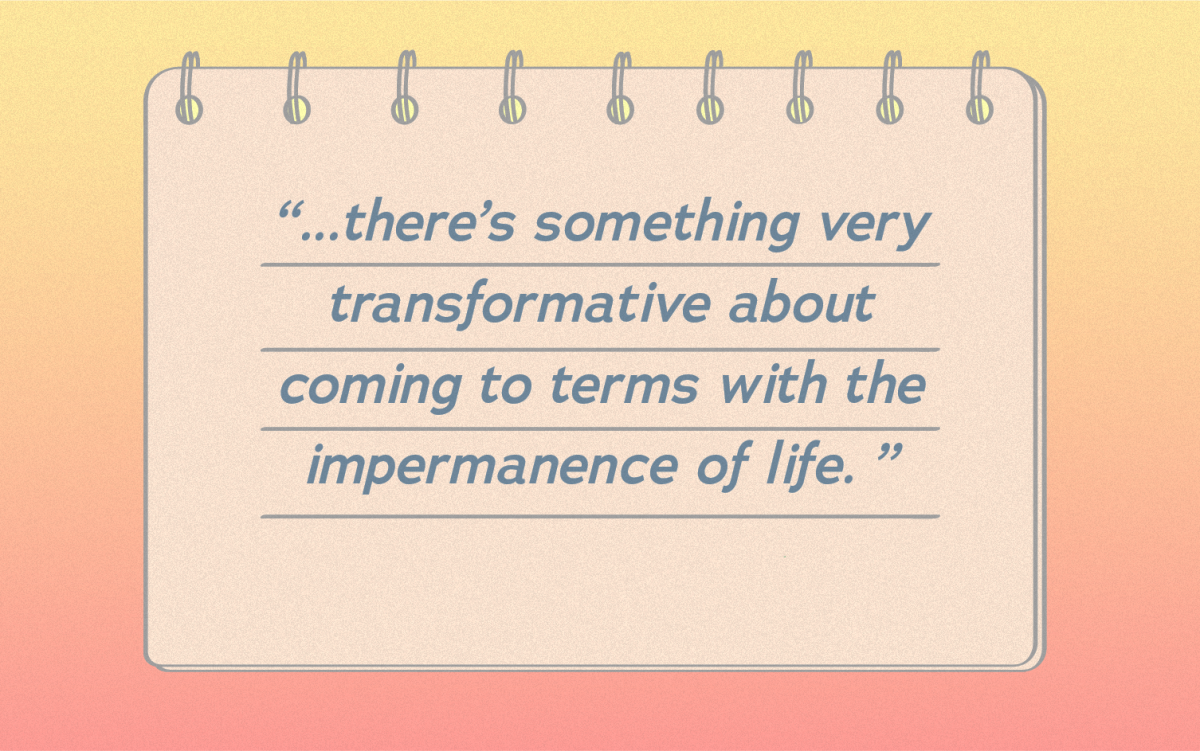
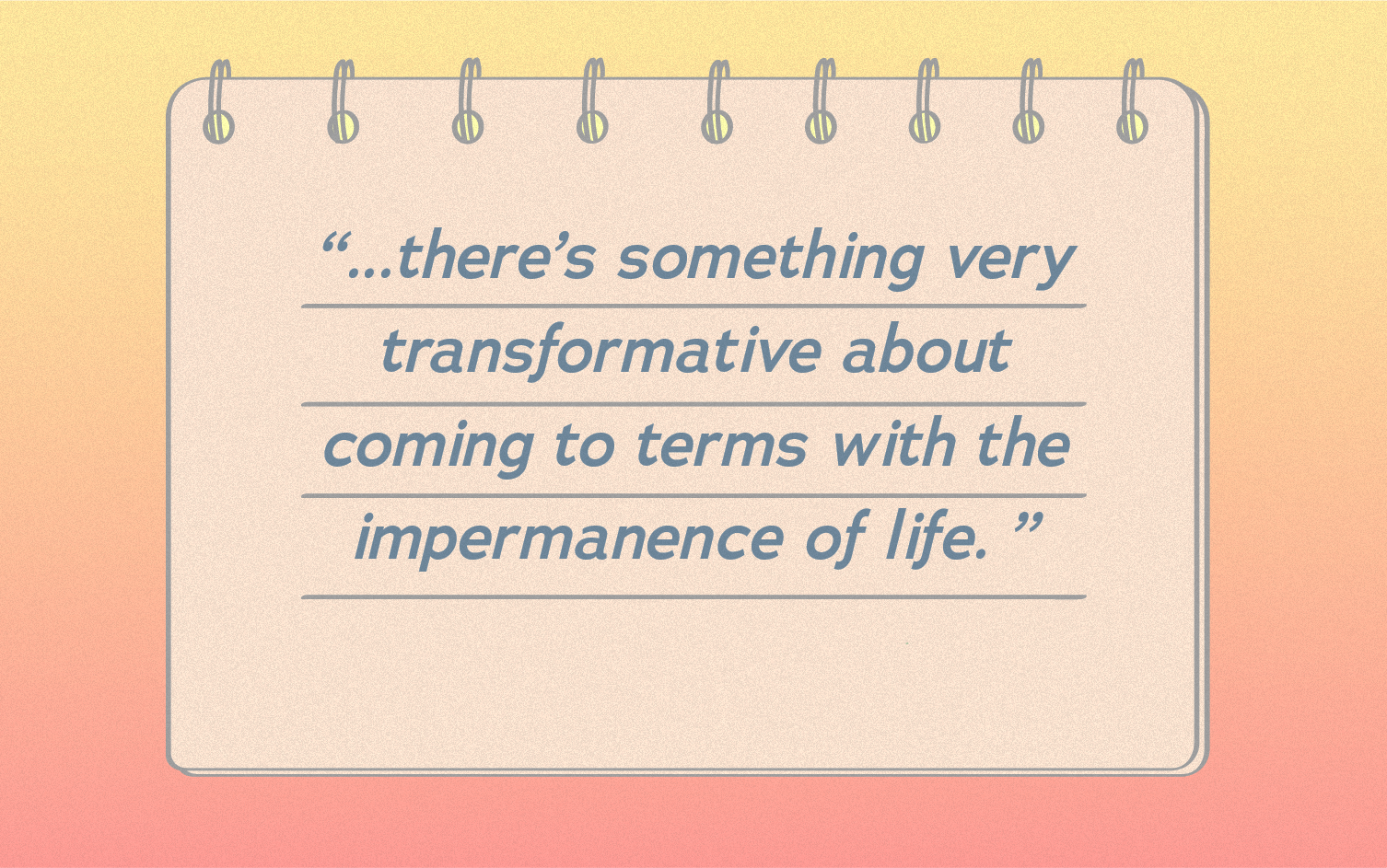
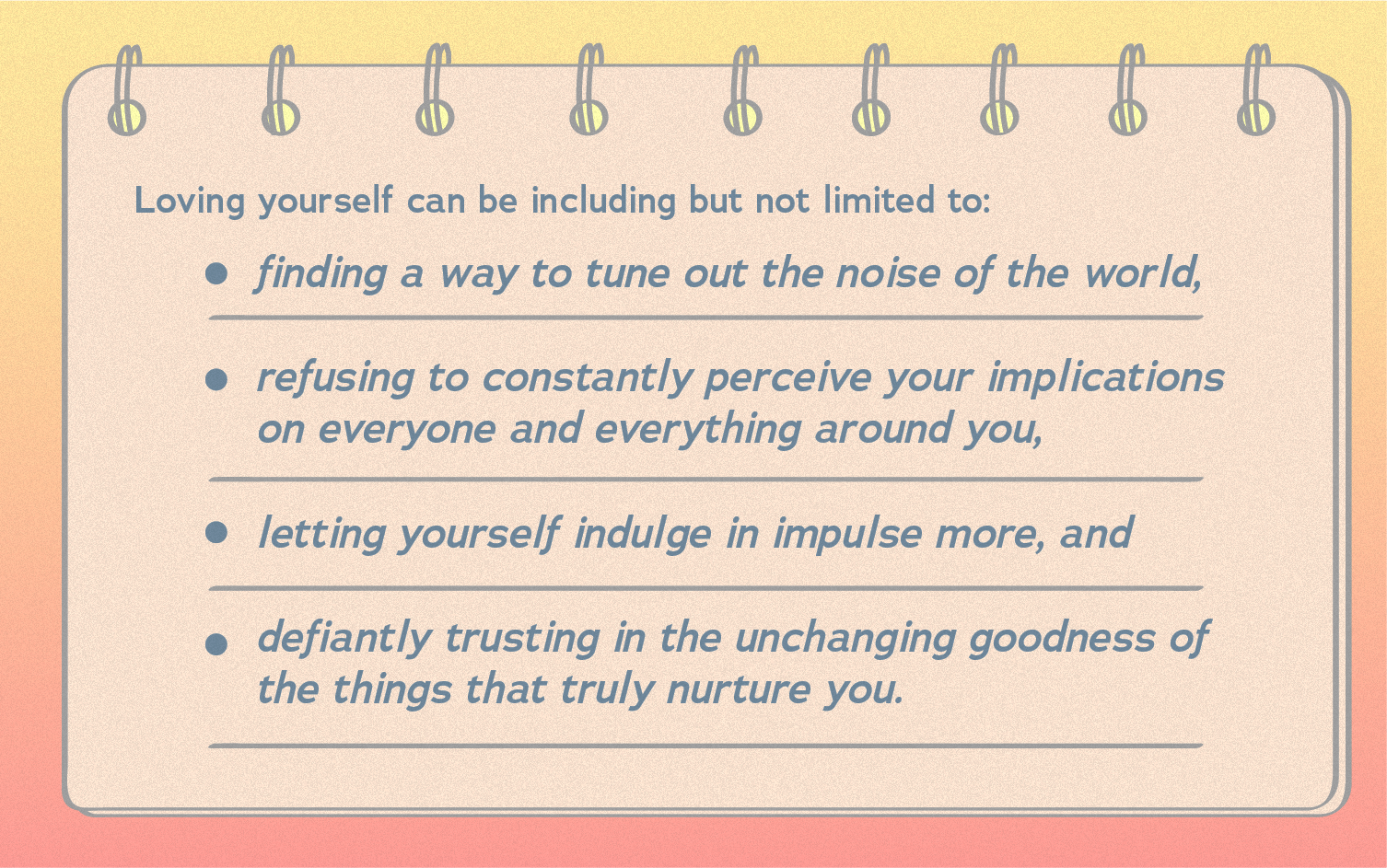

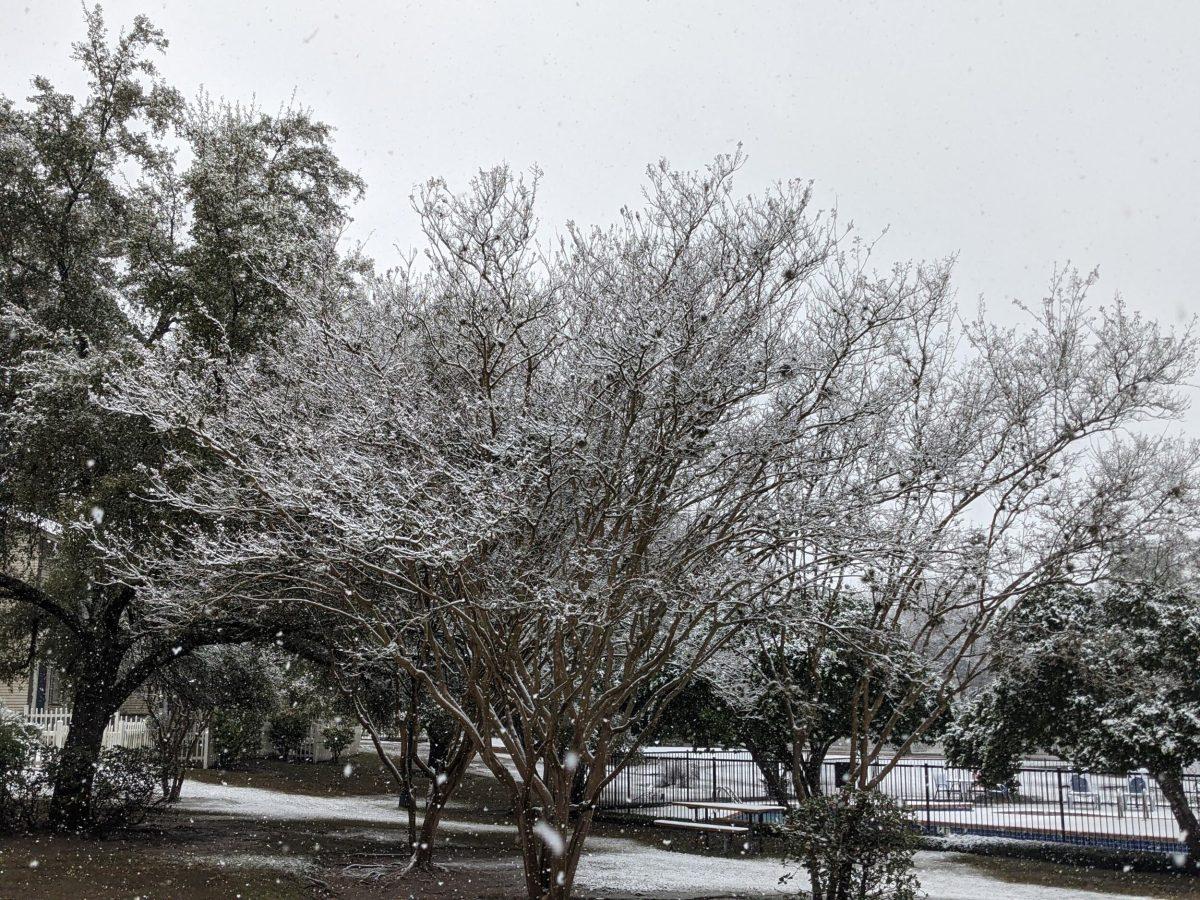



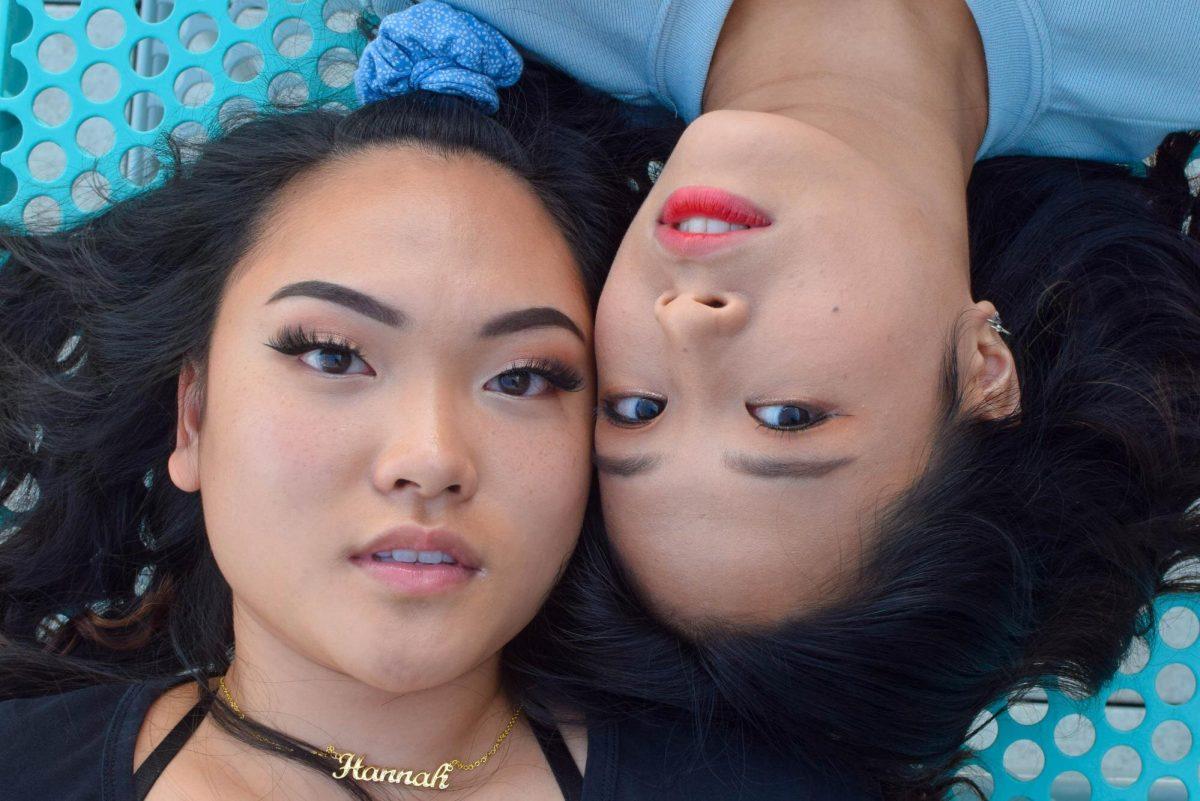






Hope Harlow • Nov 17, 2020 at 4:51 pm
So, so well said Chase!! You have a really strong voice, I can’t wait to read more of your work.